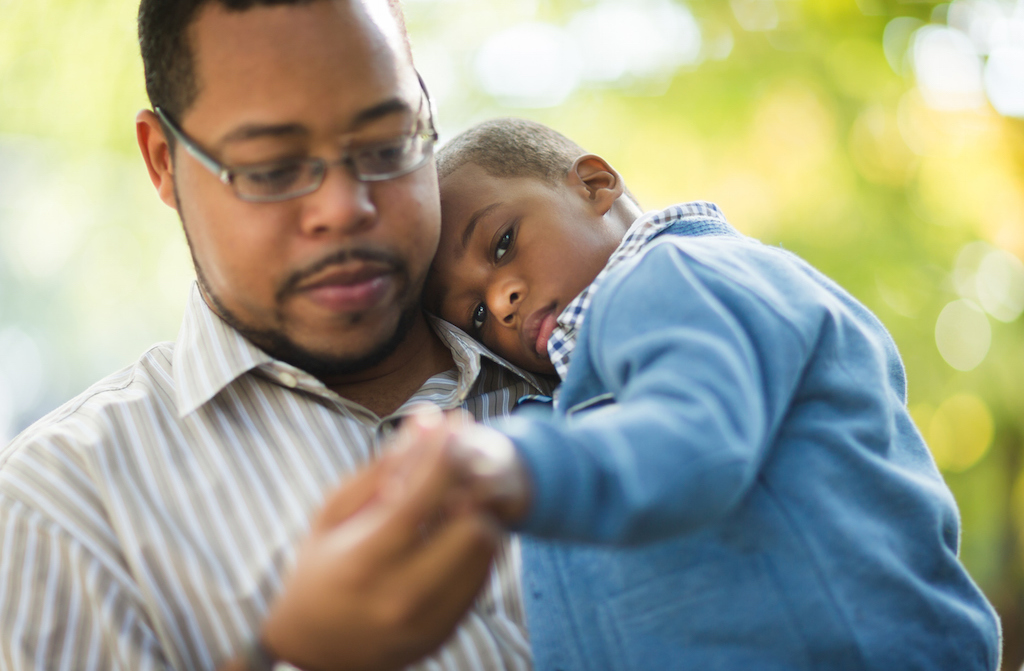Grief happens to all of us. It touches us all at some point in our lives. It is a normal response to a major loss. When it comes to helping a child navigate the choppy waters of grief, however, many of us parents find ourselves at a loss. How can we support our children through such a profound and often overwhelming experience? In this blog post, we’ll explore some strategies and insights to help you be a guiding light for your child during their journey through grief.
First: Understanding Grief in Children
Children experience grief differently than adults do. They may not have the same understanding of death or loss, and their emotional responses can vary widely depending on their age, personality, and previous experiences. Younger children, for example, may struggle to grasp the permanence of death, while older children may be more aware but still grapple with complex emotions.
It’s important for parents to recognize that there is no “right” way for a child to grieve. Some children may express their emotions openly, while others may retreat inward or seem unaffected on the surface. Regardless of how grief manifests, it’s crucial to create a safe and supportive environment where your child feels comfortable expressing themselves.
Second: Open Communication
Communication is key when helping a child through grief. Encourage your child to talk about their feelings and ask questions about the loss. Be honest and age-appropriate in your responses, providing simple explanations and reassurance as needed. Let your child know that it’s okay to feel sad, angry, confused, or any other emotions they may be experiencing.
Listen actively to your child’s concerns and validate their feelings without judgment. Avoid dismissing or minimizing their emotions, even if they seem irrational or trivial to you. Remember that grief is a deeply personal experience, and your child’s feelings are valid no matter what.
Third: Establishing (or keeping up with your normal) Routines and Rituals
During times of grief, routines and rituals can provide a sense of stability and comfort for children. Maintain familiar routines as much as possible, such as mealtimes, bedtime rituals, and regular activities. Establishing new rituals to honor the memory of the person or pet who has passed away can also be helpful. This could involve lighting a candle, creating a memory box, or planting a tree in their honor.
Fourth: Providing Reassurance and Support
Children may worry about their own safety and the well-being of their loved ones after experiencing a loss. Provide reassurance and comfort by emphasizing that they are loved and cared for, and that you are there to support them no matter what. Be patient and understanding as your child navigates the ups and downs of grief, and offer plenty of hugs and affection along the way.
Fifth: Seeking Professional Help if Needed
While most children are resilient and able to cope with grief over time, some may struggle to adjust and may benefit from professional support. If you notice significant changes in your child’s behavior, such as withdrawal, persistent sadness, sleep disturbances, or academic problems, consider seeking help from a therapist or counselor who specializes in working with children and grief. All of our children’s counselors at New Roots Counseling Frisco are trained in grief counseling for children and adolescents.
The Big Picture:
Helping a child through grief is not easy, but with patience, understanding, and love, you can be a source of strength and support for your child during this challenging time. By fostering open communication, maintaining routines and rituals, providing reassurance and support, and seeking professional help if needed, you can help your child navigate the journey of grief and emerge stronger and more resilient on the other side. Remember that healing takes time, and it’s okay to seek support for yourself as well as you support your child through this process.
If you think you might need guidance in helping your child through one of these incredibly hard times, we can support you. Give us a call.


